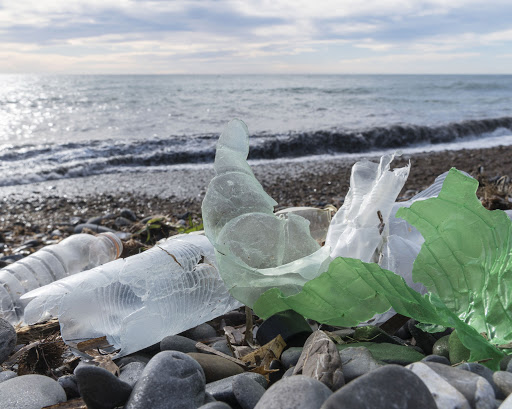A recycling queen struggles to look beyond the obvious


Since she was a little girl, KC loved animals. Every year, she would take a two-hour bus trip with her parents to Nairobi National Park on the outskirts of the Kenyan capital and spend the day watching antelopes, giraffes and noisy troops of baboons. The acacia bush also sheltered lions, leopards and black rhinos, which she was always excited to see.
These annual pilgrimages opened her eyes to the natural wonders at her doorstep – and the fragility of it all. Once, she was watching a giraffe and her calf strolling across the plains when she noticed something tumbling in the wind towards them. It was a discarded plastic bag. That sight, ruining such a beautiful moment, was etched forever in the seven-year-old’s mind.

Soon KC began noticing discarded plastic bags everywhere. If they weren’t flying in the wind, they were choking waterways. Shocked to discover that more than 24 million plastic bags were thrown away every month in Kenya, she made it her mission to collect discarded bags from all over her township.
After graduating from high school, KC worked hard to save enough money to open a small plastics recycling plant. Within two decades, the business became the largest plastic bag recycling company in East Africa and was worth millions.
Then in 2017, Kenya’s government imposed one of the toughest bans on plastic bags in the world. KC could not have been happier, as it has always been her ambition to make Kenya plastic bag-free. She simply switched to recycling PET plastic bottles and other plastic waste.
Soon enough the eco-entrepreneur saw another green business opportunity. KC started manufacturing high-quality organic jute carry bags. The strong, colourful and 100% recyclable bags were snapped up by wealthy eco-conscious Kenyan women. She also started looking at other business opportunities that could help reduce waste. KC came upon an idea to make reusable lunchboxes, to discourage the use of disposable plastics and styrofoam lunch boxes. Very soon, she launched her own range of washable cotton lunch bags with matching cloth napkins and reusable wooden utensils. These were another huge success.
Around this time, KC began searching for passive sustainable business opportunities to help expand her business. Two small companies caught her eye – one recycled plastic and turned synthetic fibres into carpets; while the other converted plastic waste into commercial synthetic fuel.
The first business promised almost immediate returns while the other one required a waiting period of at least two years. However, the latter’s future prospects were brighter as the market for synthetic fuel was gaining traction with shipping companies and airlines.
KC did not want to wait and decided to go with the company that projected returns within three months. Unfortunately, after investing millions of Kenyan shillings into the business, she discovered it needed another major cash injection. In addition, it was poorly managed and running at 70% below capacity.
Unwittingly, KC had been blinded by Hyperbolic Discounting, a decision-making bias that favours the present rather than the future. Her desire for an immediate reward rather than a higher-value, delayed reward was a costly Cognitive Bias that she deeply regretted.
Another miscalculation KC made when looking for passive investments, was focussing entirely on plastic recycling companies instead of considering other eco-friendly businesses. This bias, which narrowed both her thinking and scope of investment options, is known as the Default Effect. Substantial financial losses were incurred due to these decision biases.

Fortunately KC’s other businesses enabled her to comfortably survive. Vowing to never repeat the same mistakes again, she changed her thinking and decided to combine her two greatest passions – eco-friendly entrepreneurship and wildlife conservation – into a new business venture: a five-star eco-safari park and retreat in Kenya’s Meru National Park.
Diversifying proved to be a good business decision as her eco-safari park and retreat became one of the biggest tourist attractions in Africa. KC had learnt her lesson. “Ultimately there is no thing as failure, there are only lessons learnt well,” says KC today.
This is a work of fiction but the existence of bias is real and can be costly for any entrepreneur. As your privileged partner, Standard Chartered Private Bank is here to help you avoid biases and make more informed financial decisions. Talk to us about future-proofing your portfolio by capitalising on a wide-range of sustainable investment opportunities.
Free yourself from biased thinking as you embark on your wealth journey with us